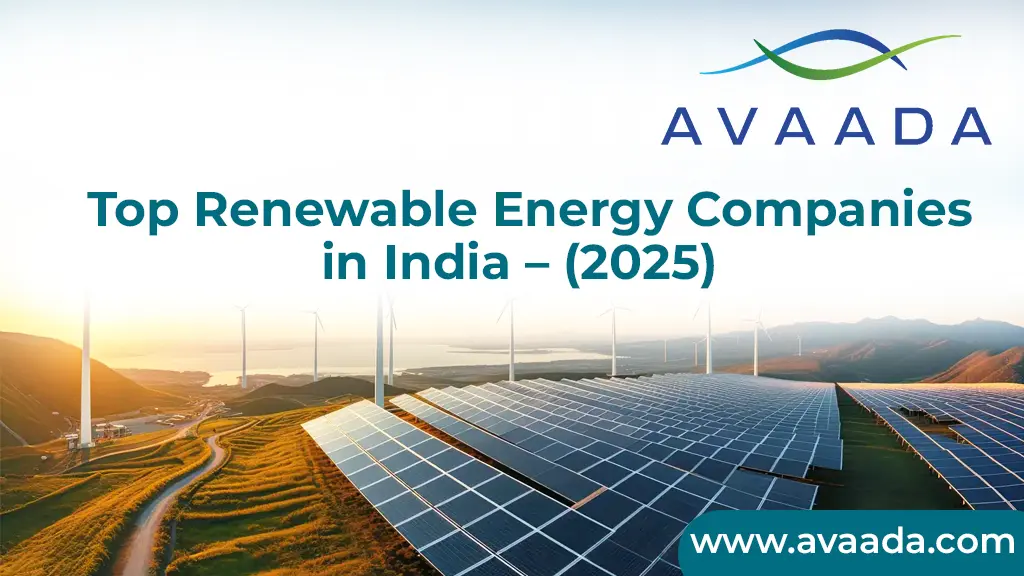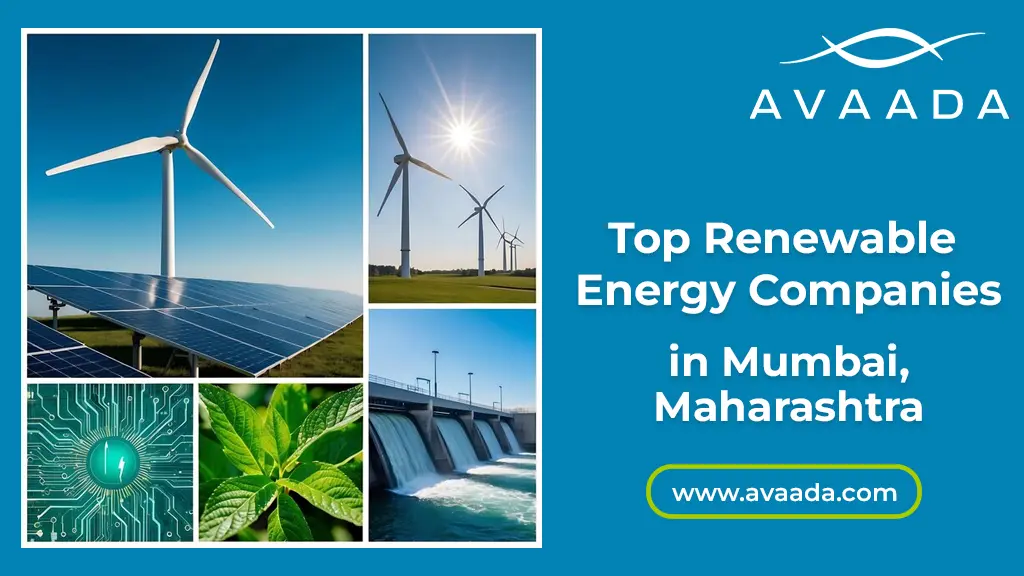India’s renewable energy industry has achieved impressive growth over the last ten years, making it one of the world’s leaders in clean energy. Led by a strong vision to cut down carbon emissions and meet its ambitious climate objectives, India has significantly increased its renewable capacity at a very fast pace. India’s total installed renewable energy capacity stands at 220.10 GW, according to the Ministry of New and Renewable Energy (MNRE) 2025. Here we have the list of the most prominent renewable energy firms in India, ranked in terms of their installed capacity as well as contribution to the entire green energy process.
1. Avaada Group
Installed Capacity: 5 GW
Avaada Group is a global leader in the clean energy transition, with expertise in Solar module manufacturing, renewable power generation, and green hydrogen, green ammonia, and sustainable fuel production. With a strong focus on sustainability, strategic foreign investments, and innovative projects, Avaada has positioned itself as a leading player to watch in 2025 and beyond.
The Group continues to shape India’s renewable energy landscape through next-generation technologies and future-forward initiatives.
Explore India’s renewable energy sector more broadly? Check out our blog on “Top Mumbai, Maharashtra Renewable Energy Companies“
2. Adani Green Energy Limited (AGEL)
Installed Capacity: 13.48 GW (2025)
Adani Green Energy Ltd (AGEL), a subsidiary of the Adani Group, remains the preeminent player in the Indian renewable market. With its diversified portfolio of utility-scale solar, wind, and hybrid assets, AGEL stands as India’s largest renewable energy player in terms of installed capacity. The firm is targeting 45 GW of renewables by 2030 in line with India’s net-zero aspirations.
AGEL’s solar parks in Rajasthan and Gujarat are among the world’s largest. The company’s emphasis on technological advancements and aggressive project execution has established it as a top performer in the green energy sector.
3. Tata Power Renewable Energy Ltd (TPREL)
Installed Capacity: 10.9 GW
Tata Power, a name that is synonymous with India, has a strong presence in the renewable energy space through its subsidiary TPREL. With solar, wind, and hybrid energy projects, Tata Power is gradually building its portfolio. The company also works on rooftop solar installations, EV charging stations, and solar pumps for farming, bringing clean energy within reach across India.
4. ReNew Energy Global PLC (ReNew Power)
Installed Capacity: 10.6+ GW
ReNew Power, listed on NASDAQ as ReNew Energy Global PLC, is India’s one of the largest independent renewable energy firms. Having a diversified portfolio of wind and solar assets, ReNew operates in a number of Indian states and plays a major role in the country’s clean energy mission.
The firm has strategically ventured into green hydrogen and energy storage to establish itself as a futuristic energy supplier. ReNew’s digitization and revamping of its activities also became a benchmark in India’s renewable industry.
5. NHPC Limited
Installed Capacity: 7+ GW (renewable segment)
Although historically reputed for hydropower, NHPC Limited has been aggressively venturing into solar and wind energy. As of 2025, NHPC’s renewable portfolio remains robust, establishing it among the leading players in India’s clean energy campaign.
The government-owned enterprise is capitalising on its hydropower experience to explore pumped hydro storage and hybrid schemes, imperative for grid balancing with the rising penetration of renewables.
The Road Ahead
India’s renewable energy path is gaining momentum, with public and private sector companies playing a key role. The government’s ambitious target of achieving 500 GW of non-fossil fuel capacity by 2030 is driving innovation, investments, and policy shifts in the industry.
From familiar giants like Adani and Tata Power to emerging leaders like Avaada Group, the leading renewable energy companies in India are changing by the day. Not only are these companies generating renewable energy, but they are also building sustainable ecosystems, empowering local communities, and developing climate-resilient infrastructure.
With favourable policies, increasing energy requirements, and a global push for sustainability, India’s renewable energy sector is ready to expand manifold in the decade ahead.








